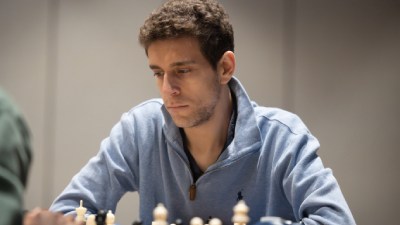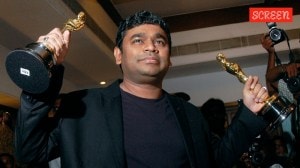American Innings
Cricket becomes a metaphor for post-9/11 US

Netherland
Joseph O8217;neill
Fourth Estate, 14.99 pounds
Even for the kind of person who has little interest in one-day cricket or IPL face-offs, there is something sunny about the sight of park cricket on a Sunday afternoon. Joseph O8217;Neill8217;s affecting new novel Netherland celebrates the warmth and leisurely grace of this kind of cricket, and this view of life. 8220;Men in white from one game mingled with men in white from another, and a profusion of bowlers simultaneously whirled their arms in that windmill action of cricket bowlers, and multiple batsmen swung flat willow cudgels at once, and cricket balls chased by milky sprinters flew in every direction8230;. From our elevated vantage point, the scene 8212; Van Cortlandt Park on a Sunday 8212; appeared as a cheerful pell-mell, and as we drove by Rachel said, 8216;It looks like a Brueghel,8217; and I smiled at her because she was exactly right.8221;
That is Hans and Rachel, one summer in New York, driving up Broadway, noticing several cricket matches being played in an open park. This is the couple whose failing marriage provides a narrative outline for O8217;Neill8217;s novel. Hans, a Dutch banker, and Rachel, his English lawyer wife, migrated to New York from London in 1998 8220;in the American calendar, the year of Monica Lewinsky8221;. But soon after 9/11, they move out of their Tribeca loft into a room in the Hotel Chelsea 8212; and then Rachel, worried about letting their little boy grow up in this city, decides that she will take him back to London. 8220;London isn8217;t safe either,8221; says Hans, who is politically and psychologically more of a drifter. 8220;But it8217;s safer,8221; replies Rachel, describing in a word how their view of life has been affected by the terrorist attacks.
The marriage will eventually survive; when the novel opens, it is 2006 and they are back together in London. Hans gets a phone call from a New York Times reporter asking about a man called Chuck Ramkissoon whose body was found in the Gowanus Canal. This Trinidadian migrant and his great obsession 8212; the game of cricket as it is played by dozens of teams of immigrants, with quiet delight and comradeship, in the corners of various parks of New York City 8212; are the real subjects of O8217;Neill8217;s novel.
At the same time, it is not as if moments of very real violence are far from the surface. Hans comes to know Ramkissoon when they play weekend cricket together across the boroughs of New York in the months after 9/11. When they first meet, at a match in Walker Park, Ramkissoon is able to talk a gun-wielding drunk off the field of play; years later, he ends up the victim of a murder.
Hans recalls a little speech by Ramkissoon to his motley group of immigrant players on their 8220;extra responsibility to play the game right8221; in their adopted country: 8220;We are playing this game in the United States8230; we have to let our hosts see that these strange-looking guys are up to something worthwhile. I say 8216;see8217;. I don8217;t know why I use that word. Every summer the parks of this city are taken over by hundreds of cricketers but somehow nobody notices. It8217;s like we8217;re invisible. Now that8217;s nothing new, for those of us who are black or brown.8230;8221;
Hans, a white man in a field of brown and black players, is a citizen of a globalising world. He has lived and travelled in many countries, and his narration is filled with impressions of the differences between people and places, but the story he tells us is of a friendship. 8220;Life carries a taint of aftermath,8221; reflects Hans, as he begins the story of this unlikely but, in the end, entirely believable friendship between men from different backgrounds, a story that returns us to the epigraph, from Walt Whitman, which describes a dream city, 8220;a city invincible to the attacks of the whole of the rest of the earth8230; the new City of Friends8221;.
- 01
- 02
- 03
- 04
- 05































